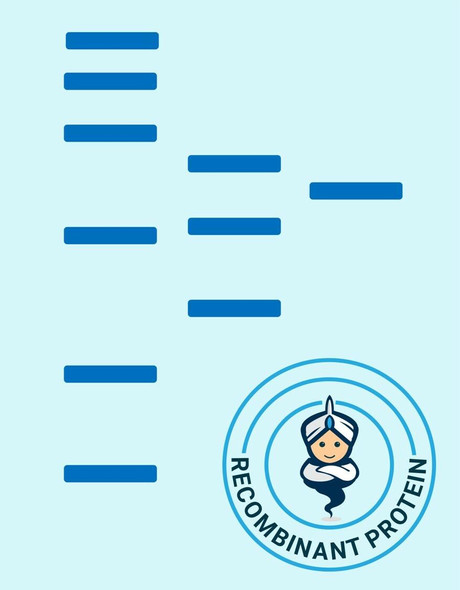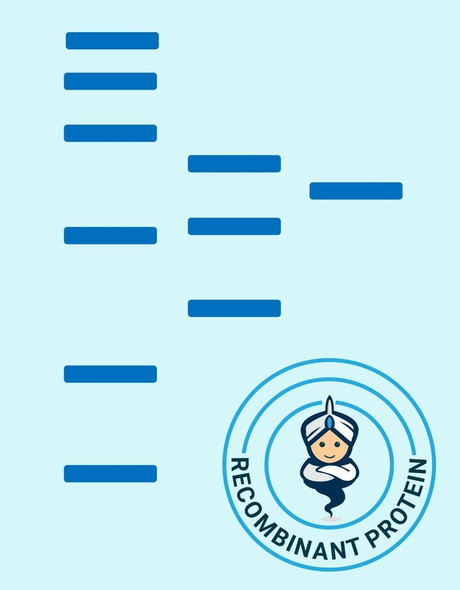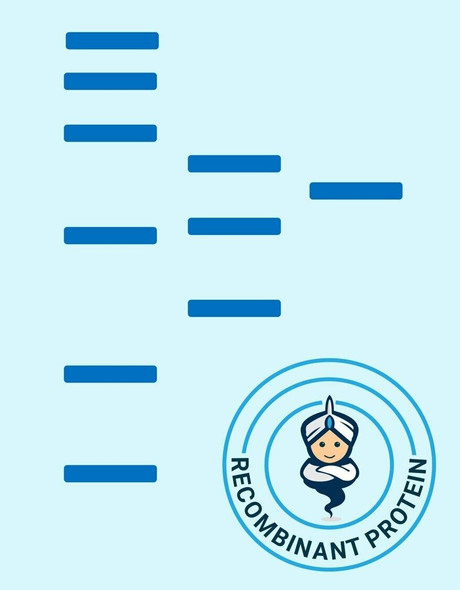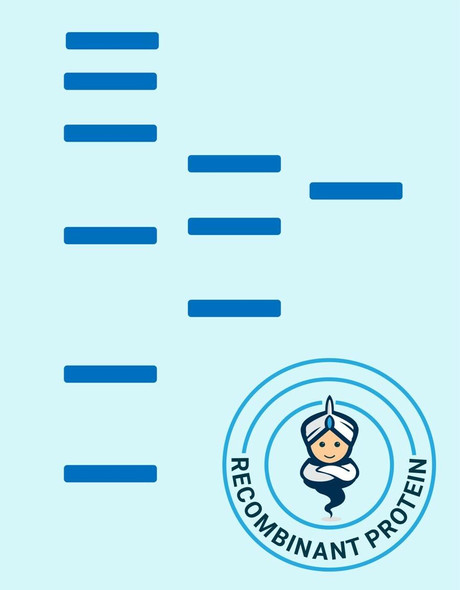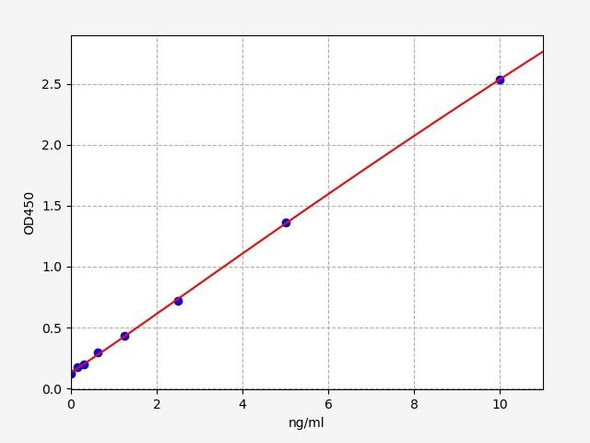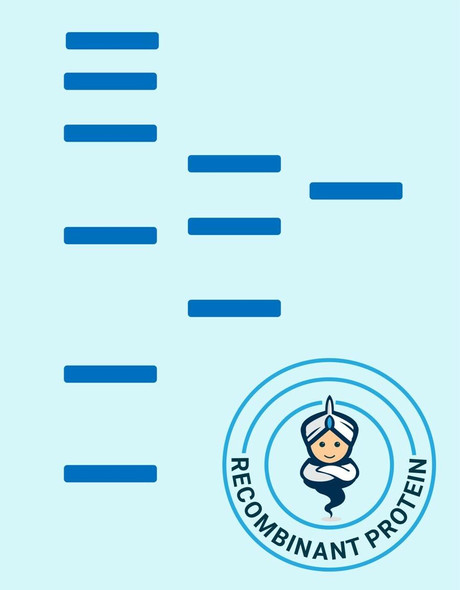Rat TARC Recombinant Protein (RPPB1262)
- SKU:
- RPPB1262
- Product type:
- Recombinant Protein
- Size:
- 20ug
- Species:
- Rat
- Target:
- TARC
- Synonyms:
- Thymus and activation-regulated chemokine
- CCL17
- SCYA17
- TARC
- Source:
- Escherichia Coli
- Uniprot:
- Q9ERE0
Description
| Product Name: | Rat TARC Recombinant Protein |
| Product Code: | RPPB1262 |
| Size: | 20µg |
| Species: | Rat |
| Target: | TARC |
| Synonyms: | Thymus and activation-regulated chemokine, CCL17, SCYA17, TARC. |
| Source: | Escherichia Coli |
| Physical Appearance: | Sterile Filtered White lyophilized (freeze-dried) powder. |
| Formulation: | The protein was lyophilized from a 0.2µm filtered concentrated solution in 1×PBS, pH7.4. |
| Solubility: | It is recommended to reconstitute the lyophilized TARC in sterile 18M-cm H2O not less than 100µg/ml, which can then be further diluted to other aqueous solutions. |
| Stability: | Lyophilized TARC although stable at room temperature for 3 weeks, should be stored desiccated below -18C. Upon reconstitution TARC should be stored at 4C between 2-7 days and for future use below -18C. For long term storage it is recommended to add a carrier protein (0.1% HSA or BSA).Please prevent freeze-thaw cycles. |
| Purity: | Greater than 97.0% as determined by(a) Analysis by RP-HPLC.(b) Analysis by SDS-PAGE. |
| Amino Acid Sequence: | ARATNVGREC CLDYFKGAIP IRKLVTWFRT SVECPKDAIV FETVQGRLIC TDPKDKHVKK AIRHLKNQRL |
| Biological Activity: | Determined by its ability to chemoattract human T-Lymphocytes using a concentration range of 1.0-10.0 ng/ml. |
TARC cDNA encodes a 94 amino acid precursor protein with a 23 amino acid residue signal peptide that is cleaved off to generate the 71 amino acid residue mature secreted protein. Along with CC chemokine family members, CCL-17 has approximately 24-29% amino acid sequence identity with RANTES, MIP-1a, MIP-1b, MCP-1, MCP-2, MCP-3 and I-309. TARC is expressed in thymus, and at a lower level in the lung, colon, and small intestine. TARC is in addition transiently expressed in stimulated peripheral blood mononuclear cells. Recombinant TARC has been shown to be chemotactic for T cell lines but not monocytes or neutrophils. CCL-17 was recently identified to be a specific functional ligand for CCR4, a receptor that is selectively expressed on T cells. CCL17 is one of quite a few Cys-Cys (CC) cytokine genes clustered on the q arm of chromosome 16. CCL17 shows chemotactic activity for T lymphocytes, but not monocytes or granulocytes. CCL17 binds to chemokine receptors CCR4 and CCR8. This chemokine plays important roles in T cell development in thymus as well as in trafficking and activation of mature T cells.
TARC Rat Recombinant produced in E.Coli is a non-glycosylated, polypeptide chain containing 70 amino acids and having a molecular mass of 8.1kDa. The TARC Rat is purified by proprietary chromatographic techniques.
| NCBI Summary: | a thymus and activation-regulated chemokine [RGD, Feb 2006] |
| UniProt Code: | Q9ERE0 |
| NCBI GenInfo Identifier: | 16924014 |
| NCBI Gene ID: | 117518 |
| NCBI Accession: | NP_476492.1 |
| Molecular Weight: | 10,480 Da |
| NCBI Full Name: | C-C motif chemokine 17 |
| NCBI Synonym Full Names: | C-C motif chemokine ligand 17 |
| NCBI Official Symbol: | Ccl17 |
| NCBI Official Synonym Symbols: | Tarc; Scya17 |
| NCBI Protein Information: | C-C motif chemokine 17 |
| UniProt Protein Name: | C-C motif chemokine |
| UniProt Gene Name: | Ccl17 |


